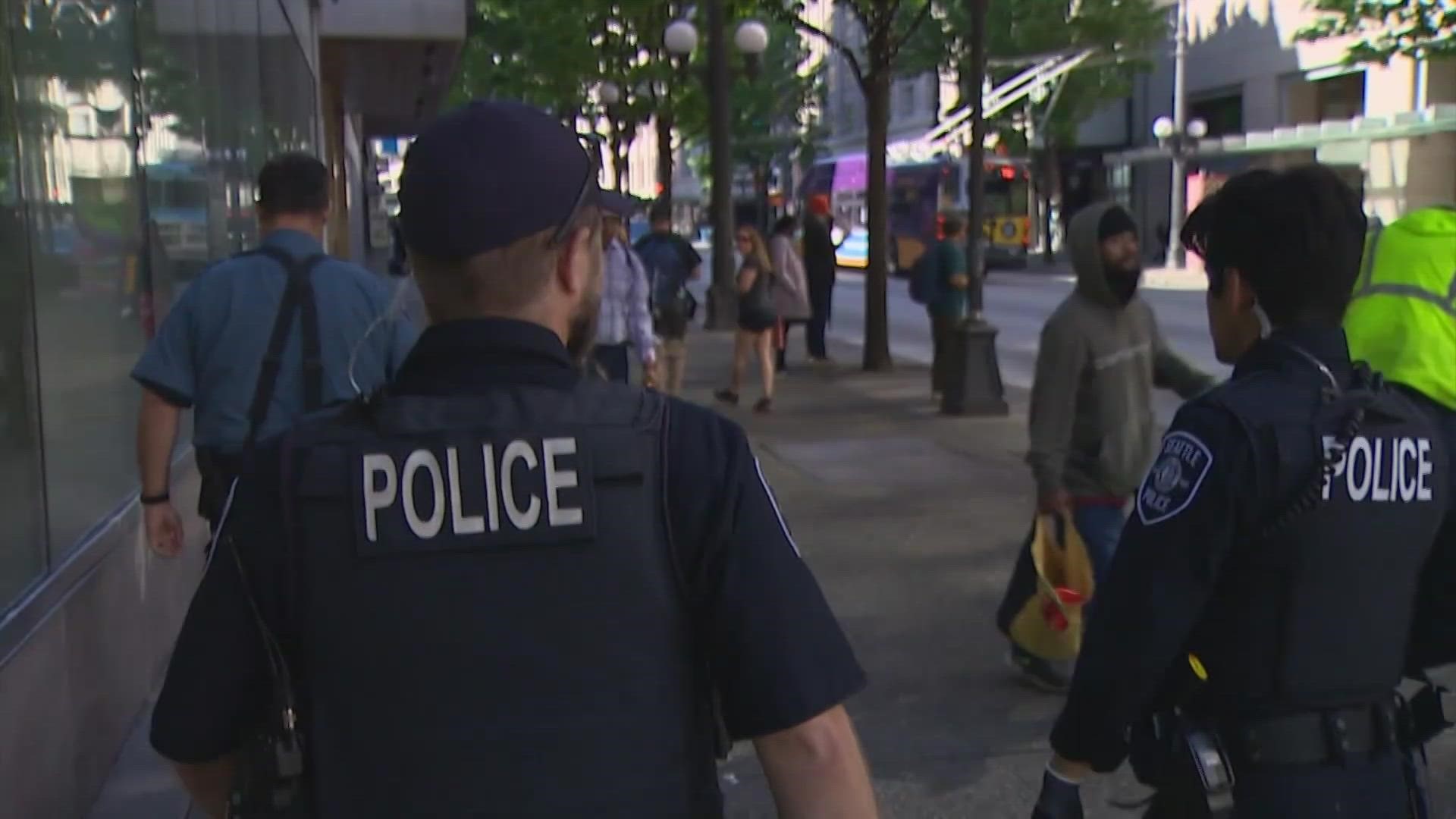SEATTLE — Policing policy was top of mind at Seattle City Hall Tuesday as councilmembers approved several reports about surveillance and one committee received a progress report on a pilot regarding "dual dispatch."
While the pilot, focused on dispatch procedures, is new, Seattle University Department of Criminal Justice Crime and Justice Research Center Director Dr. Jackie Helfgott says SPD has a history of using "co-responder" teams -- though there have been challenges to expanding the model to scale.
"It boggles my mind a little when I hear conversations about CAHOOTS in Oregon or the Denver STAR program and there's been a lot of conversation about those programs without looking inward to what we've done in Seattle and the history of everything that's happened in Seattle, under the consent decree," Helfgott said. "One issue is definitely lack of capacity and funding and issues with that, and the other issue that has come up is the politics of it all, and creating sort of this false- to me its an illusion of this 'us and them' divide between criminal justice professionals and social work and mental health professionals."
Helfgott says she believes there is more collaboration among mental health, social work and criminal justice professionals than is often portrayed. She hopes more people will come forward to give their feedback and to get involved with the process -- and says there are several frameworks available in which to do so.
Micro-Community Policing Plans allow people to give feedback on a number of factors that contribute to perceptions of public safety -- and devise ways to improve those conditions.
"[Along with concerns about specific crimes], we also measure quality of life concerns: policy legitimacy, which has to do with the degree to which people trust and rely on police, social cohesion, the degree to which people trust and rely on their neighbors, fear of crime, social disorganization, peoples' perception of lower level misdemeanor type crime, and then informal social control- the degree to which people get involved in crime and public safety," Helfgott said.
She also encourages people to get involved by participating in a series of community-police dialogues, including with "Before the Badge" recruits. To learn more about how to do so, click here.
As for Tuesday's briefing on the 911 dual dispatch pilot, updates were given on the software being used and overall progress on a policy document for permanent 911 response models, a policy proposal for response in the near-term, plans for public safety support at large events, and a communications strategy to inform the public about the city's emergency system.
Councilmember Andrew Lewis stressed the need for efficient action on dual dispatch.
"This is an extremely high priority for the constituents I meet with on a daily basis who are dealing with people in the community in crisis and don't really have a viable response or service from the city to deal with or mitigate that hazard- and the wellness of those community members experiencing that crisis," Lewis said. "And I just think the sense of urgency around this needs to be much, much higher, from all of the parties involved."

